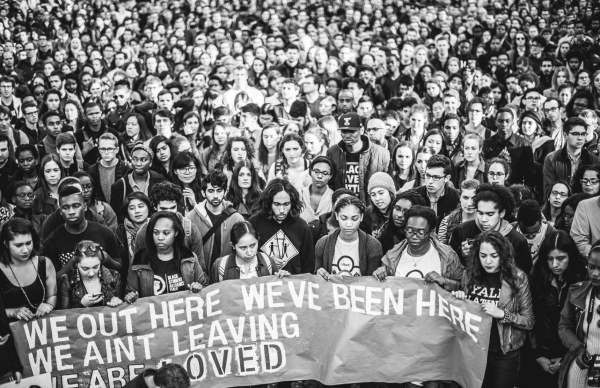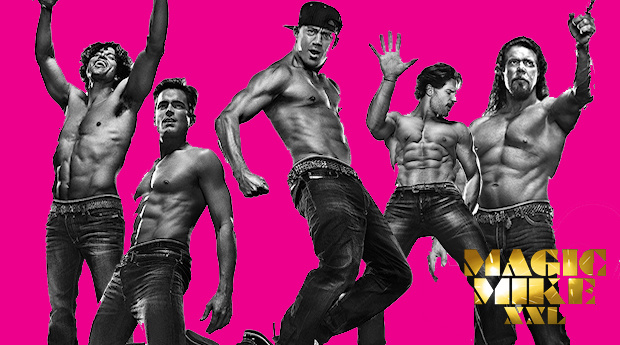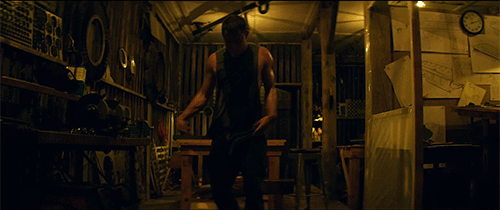On a recent Wednesday night, right smack in the heat of that thing called summer in the city, I found myself in Central Park to see some Shakespeare. The play was Troilus and Cressida which, frankly, I didn’t know at all, and it’s based on some weirdly free-wheeling mashup of The Iliad and a Chaucer tale—again, not my area of expertise. When we got to our seats (after wolfing down two glasses of rosé and some tiny canapés, thanks to my new friend in PR) I was already sweating in my long linen dress, a blister forming on my toe. My skin was sticky, many steps past that sought-after “dewy” look. I unbuttoned an extra button.
And then, magic: as the sky deepened and all eyes flicked to the open stage, I was rendered invisible.
The thing about Shakespeare is that you kind of sink into it. Like a foreign language you grew up with, it flickers in and out of conscious translation, but by the second act you’re deep in, feeling that tiny thrill when you get the joke or when you register the double entendre. Troilus and Cressida is about a lot of hot young army guys; the plot wanders; there’s a romance. Critics hate this story and call it one of Shakespeare’s lesser works. And it’s true: it see-saws between comedy and tragedy, young love and dry politics, with very little preamble or signature Shakespearean magic and sense.

But in the hands of this director, these actors, this summer in the city, it seemed like the perfect show just because of its imperfections; just because it’s so obtuse, aggressive, unfinished. Those hot young army guys—Achilles, Hector, Ajax—were decked out for the show in modern-style rugged fatigues, copious tattoos, dog tags. The romantic lead, Cressida, wears a trendy leather jacket. There are machine guns and cell phones involved. Chaos is never far. Sound familiar?
Here’s what happens: Cressida and Troilus, after playing hard-to-get for a bit, finally admit they like each other. Cute! They spend the night together, profess their undying love. Then Cressida gets swapped over to the opposing army as a prisoner of war—and, naturally, her loyalty to Troilus is put to the test.
But first, here’s a snappy snippet in which she very presciently explains the rationale behind playing hard-to-get:
Yet I hold off. Women are angels, wooing:
Things won are done, joy’s soul lies in the doing.
That she beloved knows nought that knows not this:
Men prize the thing ungained more than it is:
That she was never yet that ever knew
Love got so sweet as when desire did sue.
Therefore this maxim out of love I teach:
“Achievement is command; ungained, beseech.”
That though my heart’s contents firm love doth bear,
Nothing of that shall from mine eyes appear.
— Troilus and Cressida, Act 1 Scene 2, lines 225–234
Very contemporary, no?
But back to the story. Cressida gets gang raped. (She’s a lone woman in a military camp, unfortunately.) When a potential protector/suitor comes forward, she makes the tortured decision to forego her promise to Troilus and flirt with this new guy, to be flirted with. Troilus is hiding in the shadows and sees it all. He’s disgusted by her disloyalty. He disavows her—and after that, we never see or hear from Cressida in the play again. The show goes on.
When I got home and Wiki’ed her, I learned that she is a symbol of whorishness throughout Greek mythology and later literature. I also learned that her story really does end, not just in Shakespeare but in everything; her narrative use to the (male) writers over, she’s forever frozen in time as an icon of infidelity, a caricature of flippant red womanhood. Like a punishment for her supposed weakness, all these men chose to strip her of agency over and over again.

But what a shame, right? As Shakespeare in the Park presents it, here’s a woman who was smart enough to understand danger. While Troilus wears a bulletproof vest and a machine gun, Cressida gets tossed around by boorish soldiers in a flimsy nightie; she has to be pragmatic about survival, about the use of sexuality as capital. She did not have the luxury of trusting in the flimsy love of poetry. Or maybe we can tell a more modern story. Maybe her loyalties changed; the new soldier was pretty hot in the play. Is it such a crime to change one’s mind? More realistically, we can tell a horrible war story. She was dealing with trauma. She was dealing with life.
So Cressida: Cressida’s cool. In the heat of her moment, she’s more real than the virginal youth of Juliet, more relatable than the ice queen fantasy of Titania, more sane and sturdy than fragile Ophelia. She tells us something about the precarious power of being a woman.
But I didn’t know any of this while I watched the play on that Wednesday night in the park. I only knew that I was hooked on a complex story I’d never heard. I knew that I was looking, eagerly and for a long time, at something that wasn’t a computer—a victory in and of itself. As a humid mist layered itself snugly over us, I forgot, for about four hours as I sweated it out under the invisible stars, about the cockroach that lives in my bathroom and the rent I needed to pay and the sheets I needed to wash. Weird things went down in the play; there was fake blood and fake gunfire and cowardly betrayal. Weird things went down in my head; I was sad and ecstatic and surprised. I let summer, in all its weirdness, happen.
That’s the thing about summer: it stretches and jerks, grows bloated and sweaty. And then it gives us Shakespeare in the Park and there’s a glistening Achilles in front of you, abs flexing as he delivers his lines, hot-blooded and from another world and for a short moment, everything might just, strangely, be fine.









